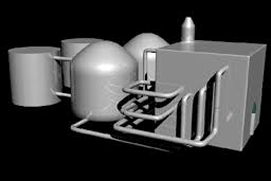Spanish startup Aglaris Cell will bring to market the world’s first bioreactor to produce cell cultures completely automatically and without the need for toxic additives such as Trypsin. The device has attracted the attention of Oxford University and pharmaceutical giant Merck.
The company Aglaris Cell, based in the Madrid Scientific Park, is developing a device which can automate the production of stem cell cultures, in what represents a major step forward for the manufacture of ‘live’ medicines.
Until now the preparation of this type of culture normally included the use of an additive called Trypsin, which is toxic for the cells and eliminates some of the proteins from their membranes. In contrast, Aglaris Cell uses an iterative method for culturing cells that completely automates the process for detaching and washing the cells without the need for human intervention nor the use of additives that increase toxicity. This is possible thanks to the use of smart surfaces which allow adhering and detaching cells as a function of changes in the environment.
Pharmaceutical giant Merck and the University of Oxford’s Transfer Office in the United Kingdom have expressed interest in this idea, which could be applied in treatments based on stem cells. The prototype, called Aglaris Facer 1.0, was patented in Spain in 2012 and is now ready to be marketed globally.
